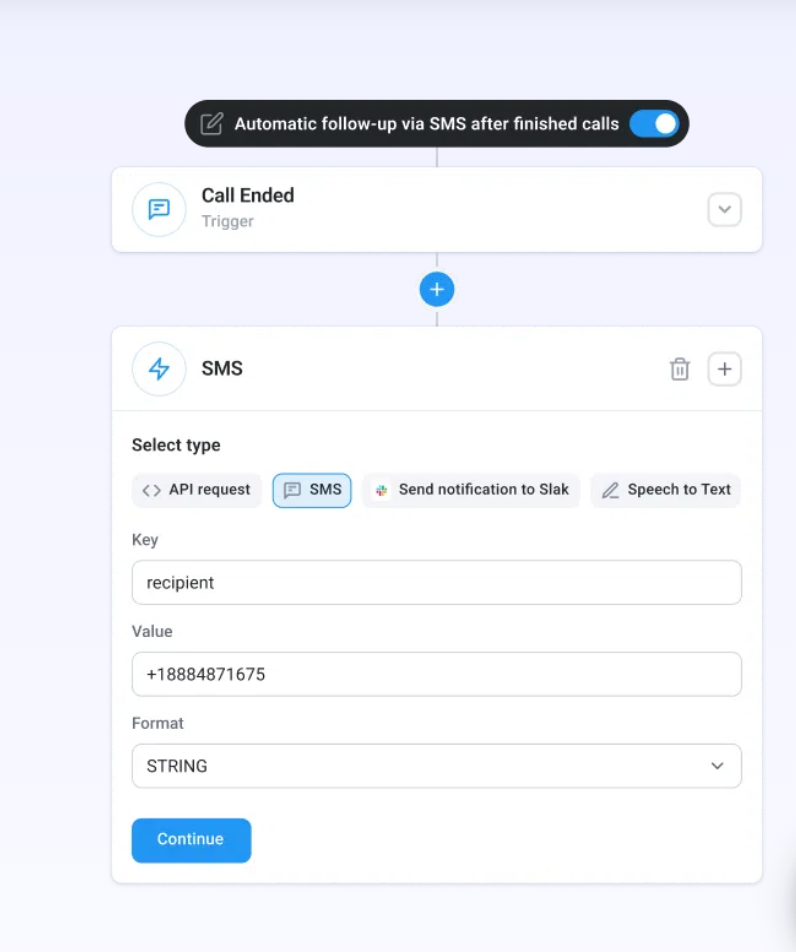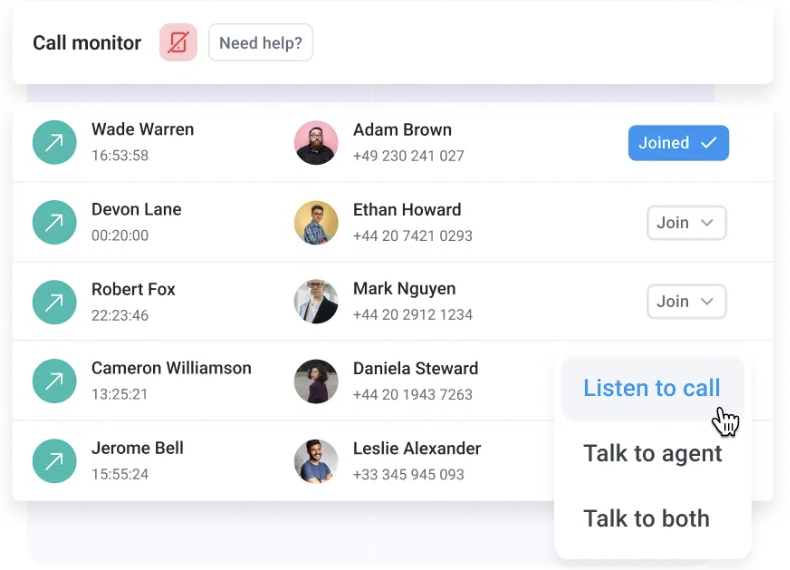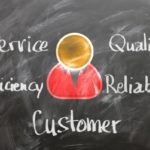10 Proven Customer Service Strategies

95% of consumers claim customer service directly impacts brand loyalty*. This reaffirms that customers today aren’t just buying products, they’re buying experiences.
Loyal customers spend more, refer others, and leave positive reviews. To keep them coming back, the experience of exceptional customer service is key.
We’ve gathered 10 proven strategies to help you turn satisfied customers into your strongest advocates.
Key takeaways:
- Customer service success begins with hiring agents who have the right attitude, motivation, and cultural fit.
- Tools like CloudTalk help improve customer service by offering features such as Call Recording, Transcription, and real-time monitoring. These tools enable agents to review past interactions, refine their skills, and ensure consistent service quality.
- Customers appreciate when they feel recognized and valued. Personalizing interactions by using customer names, remembering previous touchpoints, and tailoring offers can significantly improve customer satisfaction.
Build lasting loyalty with your best clients
10 Winning Customer Service Strategies To Boost CX
A customer service strategy is a comprehensive plan designed to guide how a business interacts with its customers. It ensures that every touchpoint, across all channels, delivers a consistent and seamless experience.
A well-crafted strategy aligns your team’s efforts with your brand’s values, helping to meet customer needs effectively and build long-term loyalty.
Yet, it may not always be easy to implement. First, you need to take a step back. Think about what an exceptional customer support strategy means for your business.
That’s where our 10 tips can help.
#1 Build a Dream Team
Strong customer service depends on your team, so it’s essential to hire people with the right mindset and approach. Even if a candidate looks perfect on paper, they may not be a good fit if they don’t align with your company’s values and culture.
Employees are more engaged when their work has personal meaning, and satisfied agents lead to satisfied customers. We recommend assessing cultural fit during the interview process and defining the qualities of your ideal team.
💡Pro tip:
Create a clear profile of what your ideal customer service rep looks like—skills, personality traits, and work ethic. This will save you time in the long run by reducing turnover and improving service quality.
When building your team, look for these key traits:
- Inner motivation: Candidates should be driven by a genuine desire to help others, not just by salary.
- Positive attitude: A cheerful, can-do mindset helps maintain happy customers.
- Self-awareness: Candidates should be able to reflect on their actions and manage their emotions.
- Empathy: Understanding and relating to customer emotions is essential for effective support. Sometimes, you’ll need to lead empathy training for call center agents to help improve this skill over time.
- Adaptability: Look for candidates who are eager to learn, work independently, and quickly pick up new skills.
Role-specific traits include:
- Customer-facing agents: Great listeners, skilled negotiators, critical thinkers, and problem solvers.
- Customer support managers: Strong at monitoring, project management, conflict resolution, and providing feedback, while also inspiring and guiding the team.
For your existing team, ensure they consistently put the customer first. Monitor performance by listening to calls and observing workflows. Look for agents who share best practices and demonstrate a commitment to high customer service standards.
#2 Optimize Training to Keep Agents Ahead of the Curve
Once you’ve built your dream team, the next key strategy is ongoing training. No matter how skilled your agents are, they still need continuous development.
Use coaching software to help unlock their full potential and ensure regular training sessions for new and existing team members.
Training should cover:
- Communication skills: Your agents need to be confident, clear, and persuasive, while also empathetic and committed to leaving no customer dissatisfied.
- Active listening: Since customers hate repeating themselves, train your team to listen carefully and retain key details. Role-playing exercises can help agents practice reflecting and responding empathetically.
- Product knowledge: Agents must fully understand your product or service, including pricing, to provide accurate information and support.
- Problem-solving: Teach agents how to handle situations where they don’t know the answer. When in doubt, it’s better to verify than give incorrect information, but don’t keep customers waiting long.
- Soft skills & patience: Teach your team to handle each unique situation with patience, whether dealing with angry, confused, or unsure customers.
Besides coaching tools, you can also organize coaching sessions within your team. Coaches often use training center software to track individual progress, personalize training plans, and provide real-time feedback based on real cases.
Pro tip:
Use CloudTalk’s Call Recording and Transcription features to capture and analyze each interaction. Encourage agents to spot their own mistakes, learn from their team members, and come up with ideas on how to improve.

#3 Foster Employee Satisfaction
You can hire the right people and provide them with excellent training, but all of that will be in vain if your agents aren’t happy. It’s equally important to recognize and appreciate their hard work.
Recognize the high performers and reward them. You can offer incentive programs. These don’t have to be only monetary. Gifts like a year-long Netflix subscription or a voucher for a good dinner can motivate the same. Sometimes, even a simple group email with a positive review on a particular agent can serve as great support.
Another strategy is supporting healthy competitiveness. Give out monthly awards for anyone who delivers exceptional performance. Agents can also nominate each other to build compassion. The good feeling of recognition from co-workers boosts team spirit, too.
Next, focus on agents who aren’t performing as well. They may need extra training, additional motivation, or even support to prevent burnout from overwork. It’s important not to overlook these agents while giving attention to top performers. Ensure you’re helping everyone reach their full potential.
#4 Use the Right Tools
Reliable call center software plays a crucial role in your customer service offering. For instance, it offers plenty of features that make everyday tasks easier and customers happier.
For instance, CloudTalk’s Real-Time Dashboard lets you monitor all call center activities in real time, while Workflow Automation triggers automatic actions based on customer responses. Automatic Callback ensures your agents never miss a call. Skill-Based Routing offers customers the best support possible from an agent with the most suitable knowledge to tackle the issue.
You also need to make sure the software integrates with your CRM and other relevant ticketing systems. This way, all data is centralized in one place, without manually maintaining it across tools. All information is instantly available for each of your agents so they can personalize every interaction and boost customer loyalty.

#5 Measure the Right Data
How do you know if what you’re measuring actually matters? You need to gain data that provides actionable insights. If it doesn’t, it’s not worth measuring. Deciding what matters and what doesn’t is a complex process.
To measure the right contact center data, start by asking yourself a few key questions:
- Will this data be used to drive action?
- Is it relevant to your goals?
- Will it lead to meaningful insights?
Once you have clear answers, you’ll be closer to identifying what to measure. Focus on data that aligns with your business needs and establish relevant KPIs (Key Performance Indicators) to track your success and understand performance.
Here are three critical KPIs to track:
- First Call Resolution: The percentage of customer issues resolved during the first interaction, without the need for follow-up or escalation.
- Average Time in Queue: The average amount of time customers spend waiting in the queue before speaking to a customer service agent.
- Average Abandonment Rate: The percentage of customers who hang up or disconnect before reaching an agent, often due to long wait times or frustration.
Remember to evaluate the full picture. For example, while reducing resolution time may seem like an improvement, if it leads to lower customer satisfaction due to less thorough handling, your metrics could be misleading.
After defining KPIs and tracking performance, ensure you’re on the right path by asking:
- Do your results compare favorably with industry benchmarks?
- Are internal teams collaborating effectively to optimize call center performance?
- Do you have control over all key processes?
By continuously evaluating these factors, you’ll ensure your contact center is running efficiently and delivering the best customer experience.
#6 Personalize the Experience
Maintaining trustworthy customer service means boosting and building relationships. That comes with improving customer experience. People are generally more open when they feel their conversational partner knows them. No wonder 76% of customers expect personalized service.
For example, you should have access to previous customer interactions and touchpoints. With AI Smart Notes and CRM integrations, agents have an instant, up-to-date overview of all clients’ interactions. Topics Extraction also makes it easy to stay on top of key updates, action items, decisions made, and questions, among other information, from each call.
Further, put an effort into treating your customers as real people. Empower your team to call them by their name. Occasionally send specialized offers or birthday wishes. You can also use Preferred Agent, where clients can interact with their favorite customer service rep.
#7 Make Data-driven Decisions
Leverage advanced Analytics to observe your progress over time. With access to key data at your fingertips, you can easily spot bottlenecks, remove unnecessary tasks, and adjust workflows. This helps agents solve queries faster with less effort.
In addition to analytics, regularly gathering feedback on your customer service is essential for continuous improvement.
Establish a reliable feedback loop to consistently refine your approach. Your feedback strategy should focus on two key sources:
- Customer feedback: Gather insights from social media, reviews, surveys, and tools like Sentiment Analysis to understand how customers perceive interactions with your agents.
- Agent feedback: Listen to your agents’ experiences with customers, as well as their observations. Hold regular 1-on-1s or team meetings to discuss challenges and opportunities.
By listening to both customers and agents, you can identify what’s working well and what needs adjustment. For example, customers might feel supported but may want more written follow-up, like a recap email. On the other hand, agents can highlight recurring issues or knowledge gaps, allowing you to target these areas in future training sessions. This feedback loop ensures you’re always evolving to meet both customer and agent needs.
#8 Welcome Complaints
Embracing complaints may seem counterintuitive, but it’s essential for improving your reputation. Acknowledging negative feedback publicly can prevent PR issues and provide valuable insights into customer concerns.
By addressing complaints transparently and offering solutions or compensation, you show customers that you’re committed to improvement. Here are four steps to turn complaints into opportunities:
- Don’t overlook negative feedback
- Resolve issues quickly and effectively
- Take action to prevent repeat problems
- Share insights with your team for continuous improvement
If you’re using CloudTalk, it’s easy to track and manage customer complaints with features like Call Recording, Call Monitoring, and Automated Workflows. This helps you resolve issues quickly and gather valuable insights to improve your service.

#9 Recognize the Importance of Customer Loyalty
Retaining customers is cheaper than gaining new ones. This basic piece of information highlights another crucial aspect: the importance of building customer loyalty, which exceptional customer service should always aim to foster.
Loyal customers are advocates of your company. They promote you, make bigger profits, and show interest in helping you improve products. They are also a lot more forgiving towards your mistakes.
Yet, don’t confuse customer loyalty with customer relationships. These are two different things. Customers that are loyal to you don’t necessarily want a relationship with your brand. Still, they will continue to regularly purchase from you if your service meets their expectations.
#10 Use Multiple Channels
Waiting until people find you is the worst customer support strategy. Most of them won’t bother if it’s overly difficult to contact your service. Focus on providing support on channels your customers use and where they can easily reach you. This is crucial because you won’t be the only one. In fact, business leaders claim their biggest priority is to drive a simplified customer experience across touchpoints.
Even though you should allow customers to switch between multiple channels, the more, the better doesn’t necessarily apply here. Don’t overwhelm support teams, and don’t waste resources on irrelevant platforms. For example, if most of your customers are on Twitter, focus on building strong support there.
Here are the main channels we recommend utilizing:
- Phone support: Around 60% of customer care leaders have reported an increase in total calls. It’s clear phone support is still essential for addressing urgent or highly detailed issues. It offers a personal touch, and customers often feel more satisfied with a direct conversation.
- Live chat: Real-time help enables customers to get immediate answers while staying on your website or app—improving overall satisfaction.
- Email: Best for more complex issues or when customers prefer detailed written communication. It provides a reliable and organized way to track inquiries and responses.
- Social media: Many customers now reach out with questions, complaints, or feedback via social media platforms. So, quick, public responses can greatly enhance brand reputation.
- Self-service: Most people prefer solving issues on their own before reaching out to support. A well-organized knowledge base or FAQ section, as well as AI-powered chatbots, can handle common questions and provide instant assistance.
- SMS/text messaging: SMS is a fast, non-intrusive way to engage with customers. It’s especially useful for reminders, order updates, and quick customer inquiries.
Leverage Integrated Software To Boost CX
Did you know companies focusing on customer experience increase their revenue by 80%? This means CX is no longer a nice-to-have—it’s necessary to keep operations running and agents and customers thriving.
Start by building the best team for the job, optimizing agent training, and measuring the right metrics. Then, use integrated AI business calling software like CloudTalk to measure progress, improve call routing and workflows, and meet your customers where they are.
Build lasting loyalty with your best clients
Sources
Frequently asked questions about customer service strategies
What are some customer service strategies examples?
Some examples of customer service strategies include building a strong, empathetic team, optimizing training and development, personalizing customer interactions, using technology to streamline service (like CRM tools and call center software like CloudTalk), and measuring key performance indicators (KPIs) to improve performance.
What are customer service strategies for retail?
Customer service strategies for retail often focus on creating a personalized shopping experience, training staff to be product experts, offering easy returns and exchanges, using loyalty programs to encourage repeat business, and ensuring fast, friendly support both in-store and online.
What are customer service strategies for the insurance industry?
In the insurance industry, strategies include offering clear and transparent communication, simplifying the claims process, providing 24/7 support, using automation for efficiency, and offering personalized coverage recommendations based on customer needs.
What are customer service strategies for the healthcare industry?
In healthcare, strategies focus on clear and compassionate communication, ensuring timely responses to patient inquiries, maintaining confidentiality, offering multiple support channels, and streamlining appointment scheduling and follow-ups to improve patient experience and satisfaction.
























